Wayne C. Allen's Blog, page 20
January 21, 2019
Real Relating — Discover Yourself
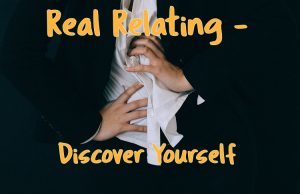
On Real Relating — Discover Yourself — relating is a forum where we get to experiment with what we are learning about ourselves

Psst! Hey!
** Want more great writing designed to help YOU to shift your behaviour?
** Want to learn how to find, build or deepen your principal relationship?
** Want to know more about Zen living and being?
Today is our last look at David Schnarch’s amazing book, Passionate Marriage.
To recap, his states that our job, when relating, is:
to stand on our own two feet,to work on those aspects of our self that are getting in our way, andto self-soothe in the face of opposition.
So, my only job is figuring me out, resolving my issues and standing forth in my ways of living and being.
Because of this, I want to be with a partner who is doing exactly the same thing. This means that I will not be in relationship with anyone who wants me to put his or her needs or wants or desires ahead of my own. Period.
A quote, for this week, from Schnarch:
“Basically, constructing your crucible involves extracting your unresolved personal issues embedded in your gridlocked situation and confronting them as an act of integrity. You do this unilaterally, without counting on your partner to do likewise, and without getting lost in what he is or isn’t doing… You focus on yourself instead of “working on your relationship” or trying to change your partner. You stop trying to make your partner listen, validate or accept you; you listen to yourself.” Pg. 234

Back when I was in Seminary, one of my friends was a “seeker of the perfect partner.” When we first met, she had just divorced her first husband. He was a psychiatrist, and her description of the process they engaged in was, “I married him because he stood up to me, didn’t just cave in. We argued all the time, trying to get the advantage. I finally left him when I realized that we were never going to be able to resolve anything.”
The marriage had lasted less than 6 months.
I asked her what it was about her that wanted to be at war with her partner. She said that she thought that conflict and arguing were signs of real life — of passion. The verbal pushing and shoving matches showed the depth of her relationship. She was “engaged.”
The problem with this was that was all there was — the fighting, the blaming, and the exhaustion. I suggested she get some therapy, so she could get over herself and so she could explore her desperate need to win.
She just laughed and went on a man hunt.
That summer, she went off to a church camp. She was the summer director, and that put her in contact with a series of men. She wrote to me weekly, describing in glowing terms the “male of the week.”
By this I mean that each man she dated and bonked lasted a week.
The first week, she also wrote that she figured things out — all by herself!! — no therapy necessary. And what she figured she wanted was a man:
who was sweet and kind andwho would listen to her and respect her andwho would let her be in charge.
Her need to be in charge stemmed from a deep resistance to taking responsibility for her life; she wanted others to change so she could be happy. With the psychiatrist, that meant winning fights. Her latest goal was a man who would do whatever she said.
Unfortunately, none of the men she serially dated seemed to be “into” such obedient behaviour. Male after male passed through; none of them had the right stuff.
The summer passed. She’d auditioned the entire Board of Directors; 10 of them!
Finally, with one week remaining, all that was left was the camp janitor… or so she told me in her final letter.
I went to Michigan to pick her up and haul her sore and sorry butt back to Toronto. Imagine my amusement, when I arrived. I found a note on her door saying she was with “Biff” or whatever his name was. She said I’d find her in his van.
And damned if there wasn’t a bumper sticker on the van, reading, “If this van’s rockin’ don’t come knockin.” And it was.
She emerged flushed and grinning. Biff, she told me, had turned out to be just perfect.
Over dinner I learned his favourite expression was, “Yes, dear, whatever you say, dear.” He clucked and cooed and even cut her meat for her. She was in charge, and she was revelling in it.
So, she married him.
Three years later, she showed up, unannounced, on my doorstep. She was leaving him, she said, amidst tears. Why? “He never has an opinion. He leaves everything to me. The sex is boring. He won’t stand up to me.” When I pointed out that these were the very things she had told me, 3 years earlier, were his strengths, she said that I had mis-heard her.
The next guy she dated was a shell-shocked war veteran who couldn’t feel, and she was determined to teach him.
The last guy I heard about was 30 years older than her and had just had a triple bypass. I joked that she was with him because she’d realized that, so far, all she’d missed out on was being a widow.
She did get therapy, from a guy she called “Donny.” (Shades of Annie Hall.) He told her she was fine — it was the men.
I haven’t heard from her since ’87. She hated that I continued to suggest that she get her own stuff together, and figure out why she had such control issues. She thought she had nothing to learn.
Schnarch:
“Yes, we all marry “for better and for worse,” but the assumption is that spouses will do everything possible to overcome their limitations — not simply demand their partner put up with them!“
pg. 302
So, assuming you have a partner and you’re stuck, and you’re willing to look at yourself and your stuff, what will be required?
Well, first of all, you need to get off your partner’s case, take a step back, and spend a while in self-exploration. This involves admitting that the cause of your distress is you, not your partner.
Now, your partner is likely not going to make this process easy. Unless they have, by some miracle, agreed to do their work precisely when you decided to do yours, their goal will be to get you hooked back into their messes — by doing the old stuff, cajoling, blaming, picking fights. They do this because, as you change the rules through self-exploration, they feel threatened, as the focus goes off them and the relationship to you.
Do it anyway.
One last Schnarchian quote: (from a case study)
“At breakfast the next morning, Joan expressed her feelings without focusing on Bill’s reaction. “I’m no longer willing to accept how rarely we talk,” she said, “and I’m no longer willing to push you to do it. But don’t assume I’m accepting things the way they are because I won’t be nagging or criticizing you anymore. For myself, I don’t want to be pathetically grateful just because my partner talks to me… And for you, I don’t want you feeling pressured all the time by a screeching wife. I’ll interpret what you do from here on as indicating your decision about how you really want to live. I make my decision about my life accordingly.”” Pg 122
The key to amazing relating is changing one’s self-view, and from that place, changing the way we interact. Without exception, the life you lead, you live, is the result of your skill at self-knowing.
Buy Schnarch’s book. Find a competent therapist. Stay with it. (Or start…)This is, after all, the only life you have, and likely the only one you’ll get.
The post Real Relating — Discover Yourself appeared first on The Pathless Path.
January 7, 2019
Real Relating — I Wasn’t Going to Do This
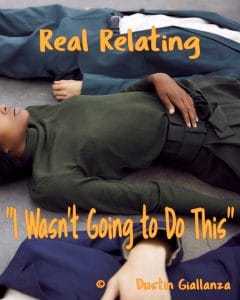
On Real Relating - I Wasn’t Going to Do This — learning to work through emotions without turning them into issues is a relationship must

Psst! Hey!
** Want more great writing designed to help YOU to shift your behaviour?
** Want to learn how to find, build or deepen your principal relationship?
** Want to know more about Zen living and being?
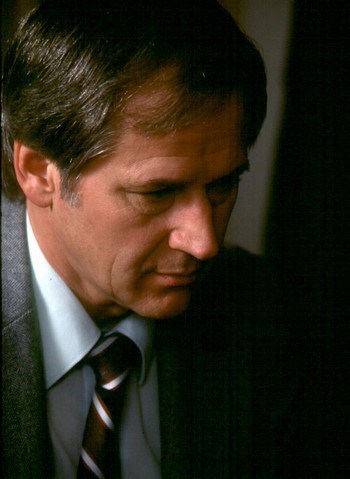
“I wasn’t going to do this.”
A most fascinating “client line,” one I heard in exactly the same context throughout my 32 year counselling career.
The line was always spoken precisely 3 seconds after the first tear coursed down the client’s cheek. The tear, combined with a rueful smile and a stifled sob, was the marker of a client that had gone a step deeper into their SELF.
This, as opposed to all the “gimmicks” clients brought with them to avoid doing any real work. Usually, this resistance has everything to do with the refusal to surrender into the pain of the real work — refusal to consider changing — refusal to show “weakness” by giving up the illusion of control.
There is, of course, a perverse logic to this resistance.
A person, for example, in relationship with someone into control, power, abuse, violence, has to learn to protect him/herself. This typically means that the person learns to hide their emotions — to erect walls — in an attempt to keep stuff out while keeping stuff in.
This is an arduous, painful process. Always, it’s accompanied by a hardness of the body — the muscles are tightened to protect and suppress.
Once learned, this way of dealing with relational stress, while completely inflexible, becomes a source of personal pride — “LOOK at me! Look at what I did!” — Thus the paradox: it’s what is necessary for people to leave abusive situations, but the price is that the person is shut down and locked in.
The question is: will this stance simply be used as an “escape” tool, or will it become a life-long way of being? If the latter, how does a tool go so very, very awry?
To understand the way this defence mechanism goes awry, we want to differentiate between acute and chronic stressors. A story, of course!
I went to an excellent inner city technical school in Buffalo, New York. In 1964–1968, it was the only High School in Buffalo with a computer, and I was into that in a big way.
It was also in a scary part of town.
Those of you that receive Buffalo TV will snicker — practically every night, the lead for Buffalo’s ABC network is, “Fire in Tonawanda, news at 6.” Or, “Murder on Chippewa, update at 11.” My school was 3 blocks from Chippewa Street.
Being young and short, I walked down Chippewa at top speed, looking neither right nor left. I’d breathe shallowly, tense my muscles (flight or fight reaction) and I’d have a pocket-knife in one fist, a set of keys extending between my fingers of the other.
Many were the nights that I’d get home from play rehearsals and find out a murder happened in an alley I’d passed at around the time of the murder.
I survived, obviously.
I went off to Chicago, or specifically Elmhurst, 20 miles West. The keys went away, and I got comfortable in a small town.
Then, I came to Canada. My first evening in downtown Toronto, circa 1976, I found myself tight, breathing shallowly and clutching my knife and keys.
I then did an interesting thing, which I highly recommend.
I stopped. I opened my eyes, my ears and my senses. I asked myself, “Do I sense a real threat, or am I over-reacting to my memory and imagination?”
Part of me, the part that had survived the mean streets of Buffalo, was scared and angry. The rest of me noticed that there was absolutely no real threat at that moment, in Toronto.
Acute “anything” is specific. In my above example, acute danger was each time I walked down Chippewa Street at 9 PM, heading for a bus, at age 16.
Chronic “anything” is an ever-present, non-specific feeling. It’s being in a state of acute anxiety or fear while sitting alone in a church pew, so to speak.
Now you can see the difficulty some people create for themselves. All “stuckness” comes from allowing an acute experience become a chronic state. You’ll know you’re in one if you think you are “entitled” to feel something, due to “circumstances.”
Let’s unpack. Being in a situation that I generate a fight or flight response over is, by definition, an acute situation. It is acute because, short of dying during the experience, all experiences end, and any experience can be exited.
However, many people “choose” to stay in a dysfunctional relationship or situation — either because they fear being alone, or don’t feel powerful enough, or have been trained to “fix things.”
They then create all kinds of stories about how the situation is going to get better “some day.”
As soon as they do this, what is acute becomes chronic. The thinking moves from “This is a situation I am in,” to “This is who I am.”
So, that’s one type of stuckness, and clients used to tell me how they “have no choice, no options” when they were in this place. Many had been in therapy for years and learned nothing. Of course they haven’t — you can’t learn something new if you think it is irrelevant to your self-imposed rigidity.
The other type of stuckness comes from finally finding the power to exit the situation without exploring the acute-chronic dichotomy.
Here, the person finds the internal power and a way to exit the painful situation. However, and it’s a big however, they don’t exit the internal dynamic.
Example: “I was a victim of abuse in my last relationship. I finally learned to stand up for myself and I got out of the relationship. Now, for the rest of my life, I am going to be powerful, wary, closed and defensive. That way, I’ll never be a victim again.”
There’s a problem here. Big problem. What’s happening is that the person is moving from a specific (acute) relationship with a specific person to a generalization (chronic).
One client had exited an emotionally abusive relationship 9 years earlier. She came for therapy to resolve issues with her kids. We came up with a strategy. We spent 2 more sessions together; all she would do was generalize about what she’d learned about good communication, how to stay focussed and her “spiritual development.”
From my side of the room, it was like I was bumping up against a smiling wall.
Her affect was gentle and caring and articulate. The feeling i felt was hard and cold and stony and closed. So, I asked, “How and where are you in all of this?” Instant tears, and “I wasn’t going to do this.”
She then began to talk about not trusting men, about how if you let down your guard someone pulls the rug out from under you, how if you show tears (which she equates with weakness), “men rush in and try to take care of you. And they want stuff in return.”
She let me know she was afraid to ever let her guard down; it was even scary to talk about it. It was her last session.
Another client was a nurse. She came in because she had been diagnosed as “depressed.” The “depression” had existed off and on for 10 years. Drugs were no longer working. She’d also had a session with another therapist the day before. This bright light, when told of her depression, offered a one-line cure: “Everyone knows that it’s impossible to have a brisk walk every morning and be depressed.” Ouch.)
I listened, I heard the short story of her life, and said, “Hmm. You spend your work life dealing with hurting people. You’re surrounded by sickness and death. Then, you rush home to look after your family. You’re on call to “fix” your friends. Who are you and where are you in all of this? Afraid your life is passing you by and you’re too busy to get a hold of yourself?”
She sighed. “I wasn’t going to do this.” Tears. And she dug in, and learned to look after herself.
This week, you might wonder, “Who are you and where are you in all of this?” What have you clamped down onto, like a dog worrying a bone, fearful of giving up?
What acute situation have you declared to be chronic? What lies beneath your tough, hard, unyielding surface? What will happen if you open, just a bit?
What will happen if you surrender your need to be special, stuck inside the tower of your chronic inability to choose vulnerability? Where are you???
“I wasn’t going to do this.”
The post Real Relating — I Wasn’t Going to Do This appeared first on The Pathless Path.
December 10, 2018
Real Relating — Finding YourSELF
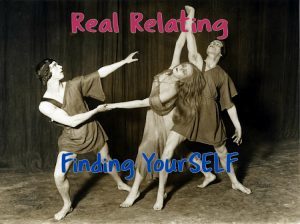
Real Relating — Finding YourSELF — Most people enter relationships either for what the other person will (endlessly) give them, or to ‘help.’ Neither approach works.

Psst! Hey!
** Want more great writing designed to help YOU to shift your behaviour?
** Want to learn how to find, build or deepen your principal relationship?
** Want to know more about Zen living and being?
Just a note: Over the next few articles, I’m going to pull quotes from Passionate Marriage
Relationships are funny things. Or, at least the reasons people enter them seem funny.
Our opinion is that relationships are the perfect learning and proving ground for figuring yourself out. Yes, you read that right. YOURSELF. Because like it or not, you are the only person on the planet who can figure you out.
This flies in the face of the traditional belief. Which has always struck me as weird. Many people get married either to have someone to look after them, or to have someone to blame for who they are and how they are screwing up.
It’s a hard thing to give up on blaming others for what isn’t working in your life — our society loves victims and encourages them to keep being victims. People love victim-mode; it’s a way to avoid confronting themselves. David Schnarch describes one mode of this as “therapist shopping.”
It often goes like this:
Client comes in and lists off a tale of woe.
Said woe is emphatically external.
They were parented wrong (who wasn’t?)
Their partner disagrees with them (whose doesn’t?)
They’re physically or mentally anxious (part of life)
They’ve had therapy and done a pile of workshops, but their circumstances won’t change (why would they?)
Now, you’d think that a person in therapy would be there for the long haul, and be would willing to deal with their issues by changing how s/he is acting. This is often not the case. For many, no matter what brought them to therapy — relationship breakdown, physical symptoms, mental distress — whatever — what many clients are looking for is justification to stay the same.
The goal for them is not self-regulation through discipline. Their goal is symptom removal.
As Schnarch puts it in Passionate Marriage,
…we never doubt that therapists have clever tricks to get us around our problems without going through them. Few of us enter therapy to change ourselves — we are usually seeking ways to change our situation or our spouse, while we remain the same. We seek out simple tips, techniques, and benedictions that tell us how to communicate and be compassionate (read: easy ways to feel understood and receive compassion.) pg. 322
I remember having one session with a couple. They were separated. He described himself as “controlling,” and as the session went on, all he could talk about was what he needed from his wife.
He was lonely, he was unhappy; he needed his wife to end the separation, come home and look after him. He told me that he had done 2 sessions of anger management… and now he had been to couple therapy. He figured he had done his part
He concluded with how badly he needed her to look after him, to affirm him, and to tell him he was a good and worthwhile person. Oh. And how she needed to let him be as he was; angry, unstable and controlling.
Many people get married either to have someone to look after them, or to have someone to blame for who they are and how they are screwing up.
I was pleased to note that she was not biting on his neediness, and was not rushing home. She was holding her ground.
He had pushed her a few months earlier, and she wanted to talk about her fear of him.
He laughed it off. Said she was painting him as being violent. That normally he only yelled and threatened — the push was a fluke. He reminded her that he had done “2… 2! anger management sessions!”
She went inside, calmed herself, and said, “I hear that you’re hurting, and I’m not coming home until I feel safe.”
Boy, did he piss himself off over that one. (I guess those 2 whole sessions of anger management hadn’t “taken,” eh?) He yelled, he cajoled, he paced.
Then, he decided to come after me. He told me in no uncertain terms that he was angry with me because (it had been 30 minutes, after all…) I wouldn’t help him get his wife to come home… to understand that she should have nothing better to do than endlessly try to make him happy.
It was clear by then that I was heading in the opposite direction — I’d suggested a 3-month trial separation, with each of them doing individual therapy. I’d said that I thought that both would benefit from growing up, getting over themselves (she wasn’t off the hook — she was an enabler and needed to look deeply at her enabling behaviours) and standing on their own two feet.
The man paced the office: out to the waiting room, back and forth. He shouted that all of his friends thought that his wife had an “imbalance of power.” (He meant: “I’m supposed to be in charge here. How dare she assert herself and not look after me?”)
I said that I got it that he didn’t like the situation: that his wife was learning to look after herself. I then said that it was not her job to look after him… it was his job to look after himself.
He said, “This is not how therapy is supposed to be going! She’s supposed to see that I did what she asked (2 anger management sessions, 1 session of therapy…) and come home.” (Read: “Wayne, if you were doing your job, you’d tell her to come home.”)
He knew I was a former minister, so he trotted out, “Show me in the Bible where it says that I should stand on my own feet, and that my wife shouldn’t look after me!” I just smiled and repeated myself. He kept shaking his head and muttering, “You’re not doing this right!”
They booked another session. Quoth the woman, “This has been great!!!” Husband glowered.
Several days later he called and cancelled the next session. He had decided that they would get counselling at their church, where, I am sure, he hoped to find a Minister who had read the same Bible he had invented.
My only regret was that she went along with him. I would guess that his manipulations finally caused her to give up on her self and return to “doing it his way.”
Problem is, as long as one partner tries to control the other, the relationship is doomed. Or as Schnarch puts it,
Long-term intimacy within marriage hinges on validating yourself rather than “trusting” your partner to make you feel safe. Pg. 113
To repeat what I said above, my life is not about me understanding other people. Nor is my life about demanding that other people understand me. My job is to figure myself out.
I can listen as others choose to self-reveal. I can even attempt to help others cut through the bullshit they tell themselves. (One of the biggest, “I just gotta be me!” Nothing holds you back more that “being yourself.” Being yourself is code for “I refuse to do the hard work of shifting what isn’t working. Being yourself has led you to where you are right now. We all need to get over “being me,” and decide to grow up.)
Growing up means hearing hard truths about ourselves (which our partners definitely will point out to us — this is the real reason for being in a relationship in the first place) and, rather than get defensive and run around whining about being ill-treated, go inside, and self-soothe.
Once I’m calm, I want to look at the criticism and decide if my behaviour needs changing. I then choose to change, not for the other person, but for myself.
Schnarch: My point is: communication is no assurance of intimacy if you can’t stand the message. “Good communication” is often mistaken for your partner perceiving you the way you want to be seen or understood. “We don’t communicate” is code for “I refuse to accept that message — send me a different one! How dare you see me [or the issue] that way!” pg. 102
In my book, This Endless Moment 2nd. edition, I wrote:
The Kayak
This is one of my favourite stories and is my take on an illustration David Raithby used in a workshop at The Haven.
My life consists of me, sitting in my one-person kayak. I am bobbing along, paddling along, on a relatively calm ocean, in the dark. I do not know where I am, or where I am going. I am “present” in the paddling, and nowhere else, as there is nowhere else.
Every now and again, I meet up with another paddler, and we get to choose whether to paddle together. We still don’t know where we are or where we are going, but we are no longer lonely. I am, however, and this is key, still alone.
A single kayak is an interesting boat. There is only room for one. No one can climb in with me, no one can take over for me, and no one can paddle my kayak for me. I am alone in my kayak, even if other boats surround me. Whining about how unfair all of this is, how I need help, how I want someone to please take over for me, isn’t going to accomplish anything, as no one can step in and bail me out.
What I can do is watch others paddle, and they can watch me. I can learn from others, and others can learn from me. Now, someone watching me paddle will see how I do it, and then they might try to duplicate my stroke, from their boat. The best they will ever do, however, is their version of my paddle stroke. They can’t be me; they can’t be like me. They can only watch and learn and do it their way.
This is the reality of life: we are born and die alone, and the rest of life is a solo job in a crowd. This is either terrifying or freeing. I’ll scare myself with it precisely to the degree that I refuse to accept responsibility for my life. I will free myself precisely to the degree that I allow myself the personal satisfaction of paddling just a little more efficiently and effortlessly each day.
There will be calm days and stormy days, and days when I’m swamped and flipped over. I can drown or I can get right side up. Whining about how unfair that is only delays getting back to paddling, which is the only “truth” of my life.
In other words, I can see my life as a lesson in elegant paddling and I can learn all there is to learn about paddling well. A silly choice would be to feel sorry for myself that I must paddle. Another silly choice would be to spend my days assigning blame to others for not rescuing me or teaching me “right,” or for “abusing me” by not treating me as special or whatever. For the ultimate in silly, I can simply give up, depress myself and stop paddling-and get blown wherever the wind takes me.
Deciding to paddle well, to accept that “the way it is, is the way it is,” is the enlightened choice. I want to be the best me I can be, and that’s totally about me-about what I choose to learn and do.
Further, I can choose to paddle with others who get this, and the paddle will be full of sharing and compassion and learning. Or I can choose to paddle alone and learn more of me.
I mean, what other option is there? It’s not like griping about “how life is” changes anything, after all. You have noticed that, haven’t you??
There’s the joy of the paddle and smart vs. dumb choices. The dumb choice is to make a drama out of the paddle and make myself miserable.
And isn’t it funny that most people pick drama over the joy of the paddle?
In my little boat, I am alone, and self-responsible. No one is “supposed” to make it all better for me. That’s my job.
Given that, what of relationships?
Darbella is in her boat, too. I can’t do anything for her. We can, however, choose to paddle along together, and keep each other company. I reveal to her what I know about myself, and especially the embarrassing, stupid, messy parts.
She may choose to do the same, although it’s not a requirement.
Here’s the important part: I choose who I paddle with… and I choose to be with someone who is choosing to self-reveal to me.
It is impossible to live life free of anxiety. There is the anxiety of relating — which requires change, and pain. There is the anxiety of trying to stay the same, in denial, pretending.
The fire of true relating, to me, seems the better choice.
The post Real Relating — Finding YourSELF appeared first on The Pathless Path.
November 19, 2018
On Knowing Me
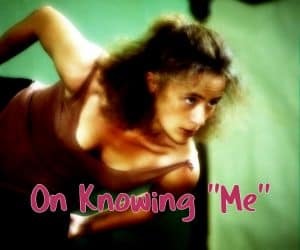
On Knowing Me — who are you, exactly? Is that even a fair question? Learning to see yourself clearly, without blame, is the skill of a lifetime.

Psst! Hey!
** Want more great writing designed to help YOU to shift your behaviour?
** Want to learn how to find, build or deepen your principal relationship?
** Want to know more about Zen living and being?
Here’s a question I received:
… I’d be interested in what you might have to say about personal limitations and failure. How do we acknowledge and accept them in a positive manner? How do we act within our limits, yet reach beyond our grasp? There seems an inherent contradiction between “setting your mind on anything” and the real, universe-given limitations that we are born with. What does failure mean with respect to all of that?
To see where “setting your mind on anything” is coming from, we have to start with the myth of the equality of persons.
In other words, the idea that all persons are capable of anything. That we’re all, at some level, the same. I’ll say more about this in a minute; let me add another piece.
Socialization
Socialization causes us to repress that which is not acceptable to those in authority over us (originally, the authority figures were our parents.) We learn to create a “politically correct” persona, so that we can fit in.
We also create a superego, which was can call the “Ideal Self.” This mind-part is never satisfied with who we are, and is like a relentless, “good cop/bad cop” drill sergeant.
The “good cop” part urges us ever onward and upward, telling us that we can do anything, be anything, and that if we actually were a decent person, we would already be doing and being more. The set-up, of course, is that we can never do and be everything our Ideal Self wants us to be and do.
Inevitably we fail, and failure turns to self-hatred. The voice of self-hatred comes from the “bad cop” side of the drill sergeant. “You always screw up. You’ll never amount to anything…”
And then, with a sly wink, the “good cop” appears. “…unless, you try harder. You can do anything, you know, if only you put your mind to it.”
What’s missing? Living a fully and truly authentic life.
Authenticity is a rare commodity these days. Authenticity comes from a self-referential acknowledgement and sharing of the totality of our being. And part of our personal acknowledgement is to clearly state that we are, emphatically, not equal.
The harpies of political correctness will of course either excoriate me or unsubscribe. For the rest of you, let’s do some thinking. Right away, some of you are going to get my point, some are going to struggle with my point and some are not going to get it.
It’s not about my point. It’s about how life is.
My point is neither right, nor wrong. It is simply my point. You will understand or not understand this point; and that’s about how you process the concept. Some people will be dead logical, others will be dragging morals (rights and wrongs) into the process, others won’t think my point is worth making and others will do… whatever.
This is a simple demonstration of the fact that our minds function differently, and therefore, are not equal. There is no one truth, and there is no one way of thinking. And, demonstrably, some people are smarter than others.
Same with physical attributes. I am my body, just as I am my mind, and all I have is the body I have to work with. There are things about my body that I can do something about — my weight or strength, for example, and there are things I can’t do anything about — my height, for example.
Same thing emotionally. Some people are gifted with a wide range of emotions, and the ability to express them without blaming. Others are gifted with their entitlements and a list of whom to blame. Both are approaches to the emotional life. Both, at some level, “work.” They are, however, not equal.
So, how did we get caught in the “equality” trap?
It’s from a fundamental mis-use of a principle of faith.
We might for example consider, as did prior generations, that we are “equal before God.” I would describe “equal before God” as: each of us has the ability to know ourselves and fulfill our purpose (dharma) within the bounds of who we are (karma.)
Because North America, despite claims to be a region of faith, is basically irreligious, the basis for understanding equality before God is missing.
Some have taken this concept and declared, without evidence, that all people are equal in all areas.
The radical right has taken this concept and declared, without evidence, that “white people” are superior to others in all areas.
All of which flies in the face of this abiding truth: in the end, the “best” I can ever be is the “best” I can be.
What does that mean?
Well, that means that life is not about comparisons to others, although we all do that. There is no question that I make comparisons all the time. My right, my choice. Based on standards I, not they, create.
I am in deep trouble if I compare myself to others. If my baseline is to be as good as or better than Joe Blow, I will be caught in comparisons that are impossible. I can’t be like Joe, as we are not equal — in anything — intelligence, wisdom, or life-experience. To compare myself (or worse, to want or demand what Joe has) is the height of arrogance and silliness and will lead nowhere I want to go.
This also means that I must (horrors!) take full responsibility for my choices, decisions and directions. Just as there is no one to compare myself to, no one is to blame for any choice I have ever made. I am where I am and I know what I know based solely upon what I have chosen to learn, to absorb, to assimilate and to find within myself.
So, to answer the question I was asked,
I am here to explore myself and to unearth the totality of who I am… to come into a place of acceptance — acceptance of my skill set (as it is, not as I wish it was) my abilities (as they are, not as I wish them to be) and my self (all of me, warts and all.)
From this place of acceptance, I will, as I choose to, push the boundaries of what I know and who I am, learning to include more and more (through dialogue with people I respect, through study, through reflection, through writing, practice and integration.)
I will, above all, keep my nose firmly planted on my face and on my side of the fence, judging my successes and failures (of which there will be an abundance — of both) on the only basis that has significance — on the basis of me.
I do not succeed when another fails, or vice versa.
I choose to be in dialogue with a short list of other explorers, and continue to open myself to their stories, their insights and their views, both of their lives and of their sense of me. In that process of open-hearted revelation, I continue to allow myself to explore the depths of the only person I can ever know.
Me.
I know that my self-knowledge and contentment is in direct proportion to my honest self-exploration and self-acceptance. No one, no thing, including life, owes me a single thing.
As in the Zen tale, tiger above me, tiger below me, and there I am ‚clinging to a breaking branch on the side of a mountain. In front of me, a strawberry. I take it, and I eat. Delicious!
The post On Knowing Me appeared first on The Pathless Path.
November 5, 2018
Whole Being — Passionate as compared to Charged

Passionate as compared to charged — Charge is uncontrolled excitement. It’s unfocussed and burns hot… for a moment. Passion is stepping into the cool river of engagement

Psst! Hey!
** Want more great writing designed to help YOU to shift your behaviour?
** Want to learn how to find, build or deepen your principal relationship?
** Want to know more about Zen living and being?
Passionate as compared to charged
As we reach the last of the comparison articles, let me say again that my intention has been to point to the differences between ways of being. I’m not particularly interested in declaring one side of each dichotomy to be “better” than the other.
I merely want to suggest that a more well rounded, fully functioning way of being requires choosing
Ben Wong and Jock McKeen made much of similar parallels in their book, The NEW Manual for Life. It is to them I owe our present discussion — between passion and charge.
They wrote that charge was what new relationship sex felt like, or of. It’s the “I’m about to blow a gasket” feeling of unbounded, enacted lust.
They state that charge can’t really last over time, because charge requires that we objectivize the other person. As relationships mature, objectivization is harder and harder to maintain. They suggest that game or role playing is probably the only way to keep charge alive in a long-term relationship.
I remember one couple Darbella and I were friends with. The guy loved to talk about his chargy sex life. After a few years, though, he was getting bored. The next thing we knew, his wife had “gotten a boob job” just for him. Then, he sent me photo of her in an, “I want to be a Hot Wife” tee-shirt.
I Googled the tee-shirt sentence. Turns out, in that context, a “hot wife” is:
…a married woman who has sexual relationships outside of her marriage, with the full knowledge and consent of her husband, who himself doesn’t have affairs.
Her wearing that tee-shirt rang false, especially after she and I had a talk, and she let me know exactly how much she was “doing it for him.” (My issue here, to be clear, is just that. She was doing all of this stuff to keep him from leaving. He was doing it so he could feel charge. Had she been into it, I’d have had no issue.)
That’s the way things go in chargy relationships. Passion, on the other hand, runs a lot deeper.
Charge is neither good, nor bad. Charge is about both sexual excitement and “life excitement” — charge is a reaction to something external. Charge, then, requires field dependence. It’s big, bold, and short-lived.
It’s external gratification for the sake of the hit, the blast, the feeling.
Passion is neither good, nor bad. Passion develops out of a heart-felt need to express oneself. To act with passion is to act with conviction, with knowledge and with purpose and direction. It’s internally generated and thus not field dependent.
Passion is a feeling of wholeness that comes from fully expressing oneself — being open and revealing of one’s self — through whatever means or media one chooses.
Our society in general revels in charge, not as a fun thing to do occasionally, but as a lifestyle. Advertising is all about creating charge and then telling us what to buy so that we can participate in the charge.
Charge promotes instantaneous gratification, and dilettantism — as people constantly flit from this to that to another thing, never settling — and then having the audacity to say that they are doing it because they are a “free spirit.”
It’s happening all around us, as people put externals ahead of self knowing.
To suggest that a charged lifestyle is self and soul destroying is to risk the wrath of the masses, because charge is all they have. Or as Rand wrote,
Ask anything of men. Ask them to achieve wealth, fame, love, brutality, murder, self-sacrifice, but don’t ask them to achieve self-respect. They will hate your soul.
Charge has its place. Sometimes, we want to let our hair down, to bungee jump, to get laid… to just let it all hang out. What we need to understand, though, is that charge is not very deep. It’s skin level.
The error in thinking is to equate chargy acts with true freedom or passionate vocationalism. Charge focussed living is living a life disconnected from the depths of self.
Passion, on the other hand, is cultivated like a fine wine.
I heard a line once:
The best time to plant a tree is 20 years ago.
Passion, like mastery, takes time.
Some people think I’m a pretty good writer. While I have a certain “born with it” gift, I also practice — I write all the time. If someone asks me to teach them to write, I say what my teachers in High School said to me. “Write. Write. Rewrite. We’ll talk again in 20 years.”
As I look back at my writing, I see the seeds of my thought today. There is a consistency in my vocational worldview that stretches back to the 60s — to High School. Which is not to say that I haven’t changed my views. Well, maybe it is. Refined my views is closer to the truth.

Same thing with my paintings and photographs. The seeds of my work today stretch back 5 decades. I can see the refinements in my technique, but the core sensibility is there… it’s been honed by actually painting, actually taking photos.
I write, I make art, and I live my life the way I do, not for show or approval, but because this is who I am. I don’t make things. I build ideas. It’s my passion and my vocation.
I have been judged to be wrong, to not be “understanding enough,” to be “too tough to be friends with.” That’s OK. I can either choose to accommodate myself to others (gaining the charge that comes from being “loved” — as in “approved of,”) or choose to live my life passionately.
I choose the latter — to deepen my understanding and my vocation, one day at a time.
I still choose to have chargy moments as a counterpoint to a life of passion. Charge is fun, no question. It just seems, to me, to be quite limited as a life choice.
Passion changes the world. Charge creates a sweat.
Passion opens one to new vistas. Charge closes doors to keep the charge going.
Passion is life long and life affirming. Charge often wears off the next morning.
Passion is about deeply revealing oneself in one’s actions. Charge is about creating an illusion in order to manipulate someone into helping you get off.
Passion is about freedom. Charge is about control.
Passion has its home in the soul, charge in the genitals.
Each has its place.
More:
Passion creates newness. Charge regurgitates what has been before.
Passion is the wind in the sails. Charge is a person being dragged along for the ride, screaming “Yahoo!” and thinking she is the wind.
Passion is built on rock. Charge is built on sand.
Passion is lived in each moment, from the depths. Charge flits from one thing to another, never landing nor taking root.
Passion is about personal integrity. Charge is about getting off on externals.
Passion is openness and vulnerability. Charge is keeping secrets about who you are and what you’re doing.
Passion is focussed. Charge is scattered.
You get the point.
Thus ends our Dichotomies series. I have pleased myself with this series, and am thinking about what to write about next.
The post Whole Being — Passionate as compared to Charged appeared first on The Pathless Path.
October 22, 2018
Whole Living — Focussed as compared to scattered
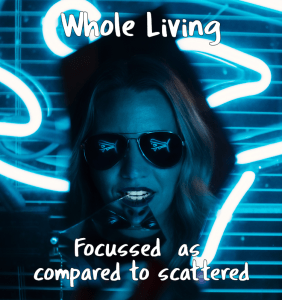
Focussed as compared to scattered — You ever watch people walking along while texting? That’s what scattered looks like. It’s a miracle they survive. Being focussed takes discipline.

Psst! Hey!
** Want more great writing designed to help YOU to shift your behaviour?
** Want to learn how to find, build or deepen your principal relationship?
** Want to know more about Zen living and being?
Focussed as compared to scattered

Always focus on the job at hand
Here’s a story from a couple of decades ago:
I’ve been working with a new client; the guy who has learned that his wife is having an affair. She’s being pretty blatant about it — she recently took off to Europe, and introduced “mister wonderful” to her two grown children.
My client is all over the map with it — and I understand that — after all, he’s never experienced this before. He’s a scientist, and he’s used to precision, unemotional behaviour and “things making sense.”
His approach has been quite scattered. He’s made demands, and then retracted them. He’s yelled and screamed… and is now trying tact and diplomacy. He’s worried about losing the house, losing the kids. He’s talking to a slew of his friends, and of course is getting conflicting advice.
I don’t think he quite “gets” me — because no matter how complex he makes the situation, I keep asking him one thing: “What does your wife want to do about the marriage?”
I keep suggesting that he say to her: “I’m not happy with the present situation. I need to know, by (3 weeks later) whether you are willing to work on the marriage.”
This approach cuts to thte heart of what is actually going on. It pulls all of the scattered pieces together.
He, however, isn’t buying it. He’s lost in his head, concocting all kinds of scenarios, involving the kids, the community. He’s scaring and confusing himself, and lately thinks that if he acts kind and sweet, she’ll “see that he’s changed” and all of this will blow over.
The problem with this is, it’s a waste of time.
His approach might have a small chance of working, but only if what she wants is for the marriage to improve.
If she’s planning to leave and is just waiting for the right time, his attempts, while both noble and helpful in a healthy relationship, are useless.
What he needs, I would argue, is focussed attention on one thing: what is his wife’s intent?
We might define:
Scattered: being all over the place, whether physically, mentally, or emotionally.
Focussed: being of one “mind.” One self. Another way of saying this is, “being integrated”.
As with all of the dichotomies we’ve been looking at, there is nothing wrong with being scattered. We live in a chaotic, random universe, and sometimes, perhaps often, we need to let our hair down and let go of thinking we can control any of it.
I used to teach businesses and individuals lateral thinking; I don’t know a lot of people who are good at that. Basically, a free flow of ideas end up getting systematized.
The lateral thinking process might appear chaotic or scattered, but it isn’t. While there is an incredibly free flow of ideas and a lot of looking at things from several angles, what’s really going on is what might be called focussed chaos. It’s not “out of control” — there is structure and meaning in the process. In that, it’s a lot like modern art.
Problems occur when there is undisciplined anything. So we propose structured chaos. In other words, even chaos is beneficial when rules are applied.
True chaos, on the other hand, often simply leads to hospitalization.
There is an implicit order and direction (a focus) beneath things that actually accomplish something. Being scattered means yielding to whim.
Examples of being scattered:
Running blindly from one thing one week, to another thing the next.
Not attending to the present moment because of the appeal of your fantasies regarding the past, the future, or “what’s wrong.”
Not dealing elegantly and directly with relationships because what’s going on in your head doesn’t match what’s going on in the relationship, and you opt for your head, thereby losing the relationship.
My preference (neither right nor wrong — just a preference) is for focus. I prefer great flexibility in my thinking and acting, without chaotic or scattered thought or action. My reason is simple. I choose to be guided by certain flexible principles, not just do whatever crosses my mind.
While I agree with the writers of Language, Structure and Change — that “Life is a purposeless drift,” I also agree with David Raithby — “We may not know where we are going, but we can choose to go in a group.” Or Ben Wong — “The facts of your life remain. What you do with those facts is up to you.”
My focus on a growing and deepening relationship with Darbella, for example, precludes doing things that will complicate matters. There is great flexibility in our relationship, but the bottom line is that we are committed to a daily walk together. So, I’m not going to pick a fight with her because I’m having a bad day or because I need to be right.
My goal of deepening the relationship precludes being a jerk and demanding my own way.
Focussed attention also applies in the “real world” of problem solving. Dar and I once spent a day “surviving.” We’d driven north of Sudbury, and stayed with a friend. The guy was a canoeist, and we had our kayaks along, so we’d asked him to set up a paddle for us.
He picked John’s Creek.
Following a hydro corridor, he drove us into the bush in a Land Rover. We reached what I would call a river. But I don’t live in the North.
The sucker was 60 feet wide and ripping along. He says, “Hmm. I paddled this thing a month ago. Took me a couple of hours to get to the lake, and then a couple of hours across the lake. But a tornado went through here a couple of days ago. Looks like there’s more water in the system. Watch out for dead-fall from the tornado.”
Undaunted, we pressed on.
Our kayaks are river kayaks. We can’t pack much. We had a first aid kit, basic survival gear, and two meals. And a tarp.
We paddled along, taking in the wilderness. We looked at birds and animals scurrying in the woods. We hit the first dead-fall 30 minutes in. Last thing you want to do is get pinned to a dead-fall in a kayak in a running river. That will kill you, for sure. Took us 20 minutes to carefully navigate around it; we managed to do it without leaving the boats.
The next dead-fall was different. A huge tree was down across the whole “creek.” It was sticking out of the river a couple of feet for the entire width of the “creek.” The banks on both sides were not climbable. I scouted around and discovered three things.
1) There was a waterfall 100 feet past the dead-fall.
2) There was a spot above the waterfall to pull out the kayaks.
3) There was a huge, bloated, dead moose caught in the dead-fall.
We decided we’d have to crawl out of the kayaks, climb up onto the downed tree trunk, pick up the boats, swing them over the tree and get back in, all without touching the moose.
We did a pile of thinking and talking, then followed through with our plan. (Dead moose smells nasty, in case anyone asks you.) We then paddled to the clearing, got out of our boats, and then portaged the kayaks past what turned out to be a quite large waterfall, perhaps 50 feet high.
We got past it, but there was no path to take the boats back down. Just a steep embankment.
(By the bye, I hope you’re getting the point. What should have been an easy paddle turned into a dangerous obstacle course. While we had a prior plan, actual conditions on the “creek” meant that we had to continually go into lateral thinking to get home. Scattered panic wouldn’t do. At that point, focussed, lateral thinking was a must.)
We sat there a few minutes, weighing our options, of which there were none. Our only “out” was the “creek.” So, one after another, we climbed into our kayaks, wiggled our butts and got them to tip over the embankment. We slid down, through trees and brush, and crashed back into the creek. Neither of us wanted to capsize and swim in water downstream of the dead moose, so we managed to keep the boats upright.
I could go on and on, but we stopped for lunch, several dead-falls and another waterfall. No more moose, though. It took us 8 hours to paddle the river.
Our survival had depended, as it does in “real life,” on focus, determination and free thinking. We paddled another 3 hours across the lake, past the hydro dam, and got to a road, pitched down. Our friends’ house was 3 kilometres down the road, which meant we had to carry our gear and the kayaks, after paddling 11 hours. We ended up carrying one together for 100 feet, going back and getting the other, carrying it past the first by 100 feet, going back… you get it.
15 hours after we started, we made it back. Obviously.
The wilderness has taught us many lessons, chief of which is the need for focus and commitment.
This week, look at your focus. How often do you lose your focus regarding your relationships, job, path, because your attention wanders and you get “scattered?” How often do you act rigidly, and miss the way out? How often are you stuck in being right, as opposed to having a flexible focus?
At the end of the day, life’s a purposeless drift. Where you end up, and in what condition, is entirely up to you.
The post Whole Living — Focussed as compared to scattered appeared first on The Pathless Path.
October 8, 2018
Whole Being — Responsive as compared to reactive
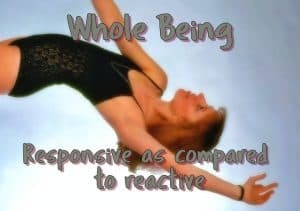
Responsive as compared to reactive — reacting on autopilot is prevalent — always has been. Learning to breathe and then to reflect means that we can respond rather than react.

Psst! Hey!
** Want more great writing designed to help YOU to shift your behaviour?
** Want to learn how to find, build or deepen your principal relationship?
** Want to know more about Zen living and being?
Some time ago I was hanging out with a friend; we were comparing notes about medical procedures. She’d had a sygmoidoscopy the day before.
Aside from a gut ache, she was none the worse for wear.
She raised a question about what a Bodywork perspective would be regarding her lower digestive tract. Her doctor had told her that she like had the ubiquitous “Irritable Bowel Syndrome.”
So, I answered her by asking her why she was reluctant to let go of stuff in her life, particularly the “crappy” stuff.
She was someone whodwelt almost obsessively on her past — on her (crappy) upbringing, her (crappy) past relationships, her physical appearance.
She dwelt on her future — fearful of making decisions, scared of changing anything, lest she hate the result.
She replied by mentioning that she had recently called her boyfriend by saying, “Come here.” “Go away.” “Come here.” “Go away.” When he asked her what was up, she said, “I just wanted to do out loud what I do with you in my head.”
Never satisfied, stuck, grumbly, in pain. And her bowels were pretty much the same.
Anyway, we ended up laughing about how much of her behaviour “just seems to happen,” outside of her consciousness, and therefore seemingly outside of her control.
As I wrote last article, what we are aware of only represents .00001% of the stimulus that hits our brain. Most of us have had the experience of driving somewhere, getting there and not remembering the drive. This is a bald illustration of this process. All the signals are getting to the brain, and the link between eyes and hands and feet operates the car, but it happens behind the scenes — out of awareness.
Here’s an experiment: Find a staircase and walk up three stairs, turn around. Facing down, hold onto the banister. Now, make yourself think about walking down the stairs.
Think about your balance, which muscles have to be contracted or released, how to move your knees, hips, ankles and feet.
Here’s what you’ll discover: If you consciously think about it, chances are that you’ll have trouble going down the three stairs. Give yourself a shake and all will be well.
We have learned not to waste brainpower by endlessly re-remembering day-to-day stuff. You don’t want to have to think about how to brush and floss, or to tie your shoes. But here’s the issue: marriages or relationships seldom get bogged down over tying shoes. Marriages break down, relationships or work situations break down because we treated the way we interact like we treat tying our shoes.
This is known as relating on auto-pilot
We engage without thinking. We hold a view about how to relate — a pre-conceived notion — locked away in the sub or unconscious, and what we do or say just tumbles out. We deal with someone’s tone of voice or a situation the same way each time. Just like good little robots.
We react instead of responding .
This despite the fact that no conversation has to come out the same, and no situation is ever the same.
When I speak about or write about relationship issues I suggest paying attention, talking honestly with one’s partner, and shifting focus from autopilot to consciously working on relating.
If people do that, they almost always get a quite different response — a non-auto-pilot response.
No question, people do slide back into auto-pilot. They slide back precisely when they stop paying attention to what is actually happening and go back to “reacting at” as opposed to “responding with” each other.
This is OK, as well as predictable — all they have to do is to remember to start paying attention again.
I once worked with a client, the wife of the pair. She was in the midst of deciding whether to leave the marriage. He wouldn’t come for therapy, as he had decided that she had all the problems. Never mind that it takes two to make or break any relationship.
Ultimately, he showed up for one session. He tried to move his chair over next to me; he said he would help me “fix” his wife. He was quite upset when I made him move his chair, while asking him how his own arrogance and single-minded focus had contributed to the ruin of the marriage.
He didn’t get it. He parroted the same words; he blamed her for not doing things his way. He wasn’t at all interested in who she was. He was only interested in changing her into who he wanted her to be.
But, and I stress this, he was not consciously reactive. He’d made a decision, long ago, that he was right and she was wrong. Everything he did was dedicated to proving this point, NOT to improving the relationship.
I just love people like him (not!) — I usually get to the point of saying, “If you are so wise and all-knowing, why have you never had a successful relationship?” Seems to me that wisdom should create results the person actually wants.
Unless he is getting what he wants. A failed relationship he can feel martyred about.
Today’s concepts are reaction as compared to response. I just thought of another definition.
A reaction always has to do with what was done in the past and is driven by regret or fear of the future.
A response , on the other hand, is located in the present moment, and is based upon a current interpretation, while also based upon a principle.
Example: You’ve had bad relationships. You react to conflict by replaying past hurts; you then decide to get revenge, and go on autopilot, reacting to everything with aggression.
To change this, you must declare a principle — “Everything I say and do from now on will be directed toward relating well (from your side, as that’s all you can control.) As a stimulus happens, I stop, remember my principle, and form a response based upon relating well.”
You may not want to, as your reaction is still in place, screaming, “Make the asshole pay!” but you freeze that reaction and choose another way, in the present moment, that mirrors your principle. You do this again and again.
Try paying attention to the way you engage with others, and pay attention to what you say to yourself. Notice how much of what crosses your lips and mind is the same mindless drivel of criticism and judgement.
Then, ask yourself, “What am I trying to accomplish by thinking or saying that?” Ask yourself what your response would be, if your goal was to consciously know yourself and strengthen your relating.
Ask yourself how often your mouth runs off without the active participation of your brain. Shift, and try it another way. Then, do it again. And again.
Eventually, destructive habits can be changed, but only if you pay attention.
The post Whole Being — Responsive as compared to reactive appeared first on The Pathless Path.
September 24, 2018
Whole Being — Awareness as compared to Non-awareness
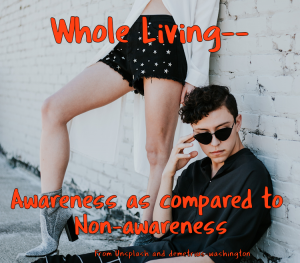
Awareness as compared to Non-awareness — not only is paying attention a challenge, what we miss far outweighs what we pay attention to. Nevertheless, it’s worth working toward more awareness.

Psst! Hey!
** Want more great writing designed to help YOU to shift your behaviour?
** Want to learn how to find, build or deepen your principal relationship?
** Want to know more about Zen living and being?
One of the odd things about Samara, the beach town we live in in Costa Rica, is that it’s difficult to get fresh seafood. There are people fishing commercially, but almost all of their catch goes to restaurants.
So, being that we are back n Ontario for a bit, we decided to take Darbella’s mom out to Red Lobster for a belated birthday lunch. And, bonus, I could eat lobster!
So I did. And I really enjoyed it. And about 3/4 through the meal I thought about coming back here to my computer, and this article. And poof. There I was, gone — non-present. Un-aware.
A mundane example, for sure.
But an ages-old issue for Buddhists of all stripes. Awareness can only be moment-by-moment, because now is all there is. Of course, now can include thinking about the future or ruminating about the past — so long as you are doing so consciously.
That’s one on the main reasons to meditate. Meditation, like nothing else, show us how easily diverted our minds are. Raising that diversion to consciousness is being awake.
And then, there’s the whole issue of how little we are aware of in the first place.
Turns out that the mental process of perceiving, and perhaps to a greater extent, interpreting experience not only affects mood and motivation. It affects us at the cellular level.
Bruce Lipton is a development biologist who has been writing about this for decades. He writes that only 5% of dysfunction is genetic. The rest is the organism’s response to the environment.
Thus, –
For example, if an organism “perceives” a stress that is actually not there, the mis-perception can actually change the genes to accommodate the “belief.”
“Perceptions” lie between the environment and cell expression. If our perceptions are accurate, the resulting behavior will be life enhancing. If we operate from “mis-perceptions,” our behavior will be inappropriate and will jeopardize our vitality by compromising our health.
In other words, what we perceive, and more importantly, how we interpret what we perceive, is chiefly responsible for our health and well-being.
Today’s topic is awareness as compared to non-awareness. Another way of putting this is, the more aware we are regarding what we are thinking and how we are interpreting our experience, the healthier we are. The more we “miss” (non-awareness), the more we think “stuff” is happening to us — we think we are governed by “stuff” that seems to be out of our control.
Simple, right? Well, not really. The question is: if awareness is crucial, what, exactly, are we aware of?
Every second, the brain is being “hit” with 4 billion signals. Of those 4 billion signals, we are only aware of around2000 bits of all that information.
Here’s a picture. Imagine it’s made up of 4 billion pixels.
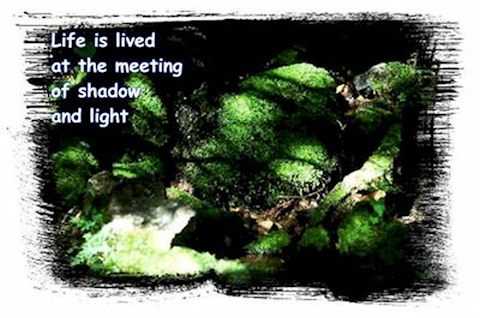
Now, let’s look at what the brain is actually conscious of. Remember, it’s 2000 bits. Here, the dot represents what we are conscious of at any given time.
Except it’s enlarged 1000 times, so you can see it.
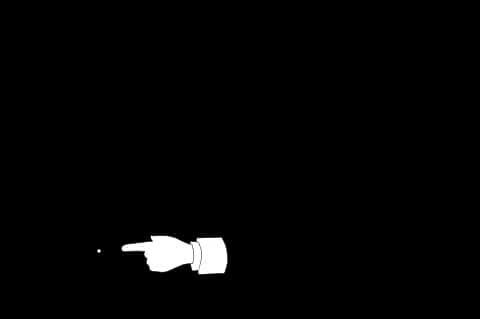
What this picture describes is this: we are un-aware of 99.999999% of the signals hitting our brains.
So, let’s imagine you want to shift a behaviour. You think about it and think about it. And you discover that nothing changes. Why?
Because the “reasons” for the behaviour are likely buried in the “missed signals.”
Let’s do an experiment: answer me this — what does what your butt feel like, right now? Hadn’t been aware of your butt before I asked, had you? Despite the fact that your butt nerves were sending messages to your brain, your brain chose not to bring it into your awareness.
Until you chose to pay attention to your butt. You are what you attend to. All the rest is somewhere in the background.
Here’s the killer: The vast majority of your “rules and beliefs” about how to be are buried in the 99.999999% “cloud of un-awareness.”
These are the things I call Rock beliefs in my book, Living Life in Growing Orbits. They are firmly fixed beliefs you created out of thin air. Once you made them, they faded into unconsciousness, yet continue to determine your behaviour, out of your consciousness.
If you are not aware of the belief, you can’t change it. Even when you become aware of it, changing a Rock, core belief is hard, hard work.
Lipton says something like, “The behaviour won’t change unless you change the core belief.” But… but… you have to be willing to dig deep and extract that core belief.
Let’s say you’re having trouble with your husband. You try different approaches: for example, you might decide to learn and use a communication model. But nothing much changes — the troubles continue.
This is a good sign that the real issue lies with one of your “core beliefs.” Perhaps, growing up, you decided that people should treat you “special.” Or, you learned you had to fight every time you felt threatened, in order to stay alive. Or you were taught that you had to get sick to get attention (this is a biggie!)
If a Rock belief is unconsciously driving your ship, no communication model in the world will help.
If you do not change the core belief, your day-to-day behaviours are not going to shift.
Period.
If the core belief remains out of your awareness, the only alternative the “system” (your body) has is to get your attention by making you sick or making you ache. If that doesn’t work, the cells begin to break down and you get deeper, more serious illnesses.
Awareness is the ability to focus your attention on what is really going on at the deep, core level. Bodywork deals with this same process, allowing core issues to emerge.
Un-awareness is thinking that your life is out of your control, as opposed to simply out of your consciousness.
Awareness is knowing what’s up at the core level. Unless and until you take core work seriously, nothing will change.
The good news is that what is in our cloud of un-awareness is simply unchosen data. It is available, so long as you are prepared to do the work of extracting it.
Give my book, Living Life in Growing Orbits, a try. It’s 365 days doing the hard work of self-exploration, at the core level.
The post Whole Being — Awareness as compared to Non-awareness appeared first on The Pathless Path.
September 10, 2018
Whole Being — Masterful as compared to knowledgeable
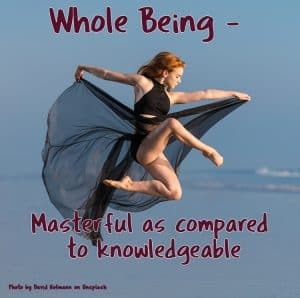
Whole Being — Masterful as compared to knowledgeable -knowing is seldom enough. Sometimes, it’s a hindrance. Mastery is moving past knowing to being.

Psst! Hey!
** Want more great writing designed to help YOU to shift your behaviour?
** Want to learn how to find, build or deepen your principal relationship?
** Want to know more about Zen living and being?
Masterful as compared to knowledgeable

When I think about mastery, my head goes to the martial arts. I’ve been engaged in martial arts various and sundry since I taught myself jujitsu when I was 12. I had a year of judo when I was 17, then several years of kyokushinkai karate, which was developed by Mas Oyama.
Oyama was the guy who brought karate to the U.S. after World War 2. He’s famous in karate circles for demonstrating the power of his style by fighting and killing bulls with his bare hands. (Of course, in this politically correct age, he’d be in jail for cruelty to animals, but I digress.)
I started out with a sensei (teacher) named Richard, who taught karate in the basement of the student union building at good old Elmhurst College, where I got my B.A. He was 6′2″ and, I thought, pretty fast.
A couple of years in, he decided to open a dojo (school) in the next town over, and import a teacher from the main school in Tokyo (Japan
September 3, 2018
Whole Being — Self-centered as compared to selfish
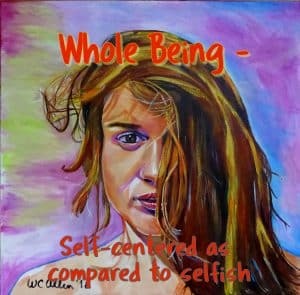
Whole Being — Self-centered as compared to selfish — we need to learn to find our focus, and to bring it gently back to learning all there is to know about ourselves

Psst! Hey!
** Want more great writing designed to help YOU to shift your behaviour?
** Want to learn how to find, build or deepen your principal relationship?
** Want to know more about Zen living and being?
Self-centered as compared to selfish
 I’m the queen of my world!!
I’m the queen of my world!!In keeping with this series of articles, let me do a quick comparison of terms. What I’m talking about here is one’s “locus of attention” — the place where the person “lives.” Before I move to the two above, let me also say that by self-centered I’m differentiating from “other-centered.”
There’s a reason for thinking about this — and the selfish part comes into play in our programming as children.
Let’s define the three terms:
Self-centered: “I like ice cream, I have a quart of Chunky Monkey™, and I’m going to have some now, as I love it. Would you like some too?”
Other-centered: “I like ice cream, but I know you like it more. There’s not much Cherry Garcia™ left, so you take all of it.”
Selfish: “I like ice cream, and not only am I going to eat my Vanilla HEATH® Bar Crunch Ice Cream, I want yours, too.”
About Selfishness
We condition children to fit into society, and most parents pretty ruthlessly try to eradicate selfishness. My parents’ generation simply stopped their kids from doing what they pleased by using threats. That created a couple of generations worth of people who see as their life’s mission to make up for lost time. We have multitudes of “boomers” running around grabbing a hold of anything that isn’t nailed down, and using crow bars on the things that are.
Often, such people are the ultimate capitalists.
“I want, I deserve it all” is their motto. This was crystallized in the 80’s in the mantra, “You can have anything you want.” And of course, there’s a paradox here. There is enough. For everyone. The problem with selfishness is, the selfish person doesn’t know when they have enough. Not being satisfied with one dish of Triple Caramel Chunk™, they want a truck full.
(And yes, I LOVE Ben & Jerry’s Ice Cream!!!)
The cosmos is not kind to those who are greedy and selfish. As is the nature of life, things shift. Things slow down. The creed of the 90’s became, “You can have anything you want. You just can’t have everything you want.”
That was a major counselling issue in the mid-90’s — people would come in and want to excel in their career, have perfect children and an excellent marriage, and still have time to be a scratch golfer. They had great trouble grasping the difficulty involved in making even one of these things happen, but because they’d been brought up in a culture obsessed with having and doing everything, they felt incredibly hard done by.
Now, in the 21st century, the rule seems to be, “Unless you are in the 1%, you can’t have everything you want, and maybe you can’t have anything you want.”
Payback time, I guess you’d call it.
And then, there’s the Millennials.
Not that it’s a good idea, but most people can use entitlement language without blushing, so long as it’s generalized. Most people agree that “people should be successful,” or “everyone is entitled to a bigger house or a larger salary,” or whatever.
It gets more interesting when it’s personal. One of the consequences of “my” generation’s upbringing is that we raised our “kids” to think they were special, Indigo kids, Einsteins in the making. They were given whatever they asked for, and even given what they didn’t.
Many of them became personally entitled. They expect praise because they are breathing. They want rewards for doing the minimum. And it is certainly “all about them.”
People who do not overcome entitlement want more of the pie than what they earn. But perhaps more importantly, they want others to provide the extra pie. Not only are they focused on their own needs and wants, they expect the people around them to actively participate in meeting their wants and needs.
They consider themselves the sun, and everyone else is merely a planet circling around.
I remember, some decades ago, working with a nurse who, in the first session, told it that it was my job to see that she didn’t commit suicide. Her friends had been doing that for years, and she’d decided she needed a professional to keep her alive.
When I stopped laughing, I told her that we’d be working on her looking after her own life — if she didn’t want to do that, she could find another therapist.
She was horrified. This was the first time in her entire life that someone wasn’t willing to be manipulated or guilted into put her needs ahead of their own. After infrequent therapy she quit — saying that she couldn’t continue to work with a therapist who wanted her to stand on her own two feet, without involving others.
About Other-centeredness
The other (dysfunctional) way this can go is that people can be trained not to be selfish by being forced to put the needs of others first. Their life is one trial after another, as they chase their tails trying to be and do what another person wants.
A friend dropped off her 17-year-old at our place, having spent the entire drive berating her for not having her life figured out. Daughter was beside herself. While Darbella hugged her, I said,
“Here’s a secret your mom doesn’t want you to know. You’re going to a party, and she doesn’t want the relatives to hear you don’t have plans for next year, and think she’s a “bad” mom. So she wants you to figure your life out, and tell the relatives, so that others will think your mom is a “good” mom.
All of this is about her, not you.”
We’re not here to be running around doing what other people want us to do. For all you folk that think you’re being a bad kid for not being obedient, it’s time to grow up and be a self-centered adult.
About self-centeredness
My favourite option is finding internal strength and meeting internal needs. In other words, being self-centered. Because, as I often ask,
Being self-centered is all about growing up and standing on our own two feet.
We choose to be with others, to share, to interact, but not out of neediness or the need to be in control.
We choose to be alone because we know that, in the end, we nourish ourselves.
We choose to focus our attention on our vocations, because we are called to be of service.
Our expectation is not to have everything we want, but to be everything that we are.
Nothing, not parents, spouses, kids, takes precedence over our need to know ourselves through inter-relatedness and introspection.
This is not selfishness nor self-absorption.
This is living the quest for self-knowledge and self-responsibility. I may choose to be of service, but it will be by choice, not from guilt.
My life will be lived knowing who I am. My actions will be from desire, not imagined obligation.
This week, think about your motivations, and the location of your centre. If you’ve stuck your centre out there somewhere, draw it back in. If you think others should care about your needs, get over yourself. Clean up your walk.
The post Whole Being — Self-centered as compared to selfish appeared first on The Pathless Path.



